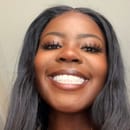While you may already believe in the principles of inclusivity and intersectionality, you should still read this article. And then once finished, maybe you should read it again.
In the age of social media, it’s easy to feel empowered and committed to social changes. While social media has helped activism and mutual aid work thrive, it has become entirely too easy to consume activism online and share it without really processing it. Not everyone needs to become a political science major and attend every protest in their area—but everyone needs to take a good, long, honest look at themselves to see if their online activism is truly representative of their policy stances.
If you identify as an intersectional feminist, chances are you have already rejected white feminism. White feminism is the centering of white women within the women’s movement and the view of womanhood through white femininity.
However, rejecting white feminism alone does not make you an intersectional feminist.
Intersectional feminism is recognizing that women of different races, class status’ and sexuality experience oppression in varying degrees of intensity and configurations. As critical race theorist Kimberlé Crenshaw said, intersectionality is “a prism for seeing the way in which various forms of inequality often operate together and exacerbate each other.” Crenshaw’s work seeks to highlight how recognizing your own privilege and intersections can help you identify and recognize your own biases and prejudices.

Every intersectional feminist understands that racism is wrong, homophobia is unacceptable, and that you should never discriminate on the basis of someone’s immutable characteristics. These are easy principles to uphold in theory. However, in practice, we will ALL find that we are much less inclusive than believed. So I ask again, are you really as intersectional as you claim?
When you read J.K. Rowling’s transphobic essay on sex and gender issues, did you find yourself rationalizing some of the painful tropes she reiterated? When RBG died, were you quick to hail her as a progressive trailblazing figure despite her repeated failings to protect indigenous women?
Have you been equally as vocal about migrant women undergoing unwanted hysterectomies as you were when you realized Roe V. Wade could very well be overturned this October?
Are you quick to mention that women overall make 78 cents to every man’s dollar, but rarely mention that Black and Latina women make 64 & 56 cents, respectively?
When you attended the Women’s March in D.C. in 2018, were you quick to mention that the March featured three prominent activists of color instead of the problematic majority white staff?
When learning about anti-racism work, did you consciously consume writings from Black authors and activists, or were you taking notes from white organizers with no valid experience with racism? Being educated about the challenges women face is not enough. Ignoring the pressing issues of inequality in our society is not self-care. Expanding equality to white cisgender women is not feminism. So once again, let’s repeat everyone’s least favorite phrase:
If the only thing you have to lose by talking about discrimination is your own comfort, you’re either the queen of being unbothered or you’re just white.
Ironically, I have spent this whole story critiquing unqualified social media social justice warriors, and I am undeniably one myself. So don’t just take it from me.
Here are three Tedx Talks that I love for further contemplation:
https://www.youtube.com/watch?v=Fxt_MZKMdes
(This one is less intersectional but, still an incredibly entertaining talk that we should all watch!)



